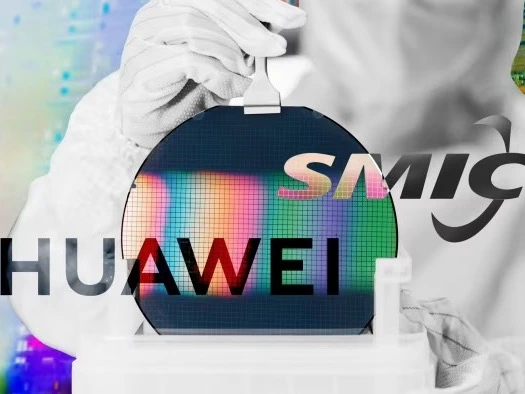- Huawei and SMIC added to Taiwan’s strategic export control list, alongside groups like the Taliban and al-Qaeda
- Taiwanese firms must now apply for special licences to export to the two sanctioned Chinese tech giants
What happened: Taipei tightens scrutiny on Chinese tech giants Huawei and SMIC
Taiwan’s Ministry of Economic Affairs has added Chinese chipmakers Huawei Technologies and Semiconductor Manufacturing International Corporation (SMIC) to its export control list, a significant policy shift that requires Taiwanese companies to seek government approval before selling high-tech goods to the two firms.
The updated “strategic high-tech commodities” list was published on Sunday, categorising Huawei and SMIC alongside restricted entities such as the Taliban, al-Qaeda, and several sanctioned firms in Iran and China. Neither Huawei nor SMIC has issued a response to their new classification.
This move interferes more into China’s development of semiconductor technologies just as Huawei and SMIC are trying to enhance their capabilities in their AI chip industry. Both the companies are at the central point of China’s vision to end its over-dependence on American suppliers especially for modern AI chips, data centers, and military technologies.
Also read: US warns against Huawei AI chips
Also read: Chinese chip maker SMIC may have violated US law to make Huawei chip
Why it’s important
The timing of Taiwan’s action is no coincidence. As US-China tensions intensify over AI leadership and supply chain control, Taiwan—home to the world’s largest contract chipmaker, TSMC, a critical supplier to Nvidia—is increasingly seen as a strategic player in the global tech chessboard.
By incorporating Huawei and SMIC to the export control list, Taiwan conveys its desire to be more in line with assistances from the West in hindering PRC’s semiconductor advancements and parallels the increasing geopolitical tensions faced by Taiwanese firms, who must now be cautious while managing their commercial interests vis-a-vis the national and international security aspects.
As for China, restrictions embodied serve yet another challenge to China’s ambition to achieve semi-conductor self-sufficiency, the recent attempts by HTC to outsource production to DAC’s foundries yields little progress as it becomes harder to access the tools and technology provided by the Taiwanese.

